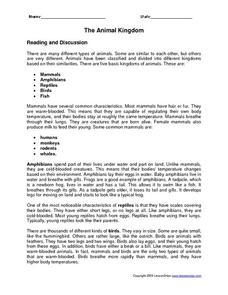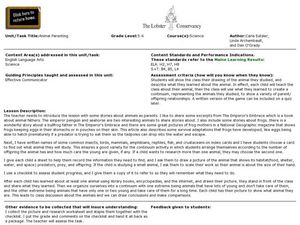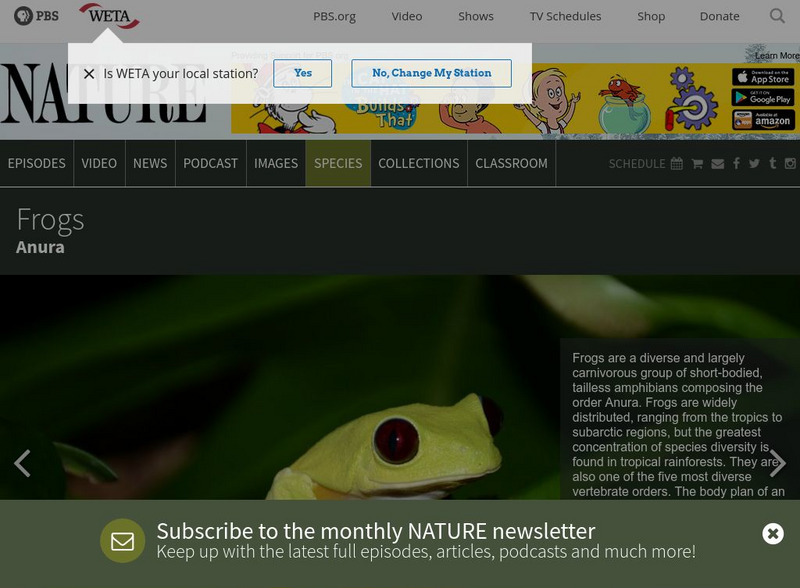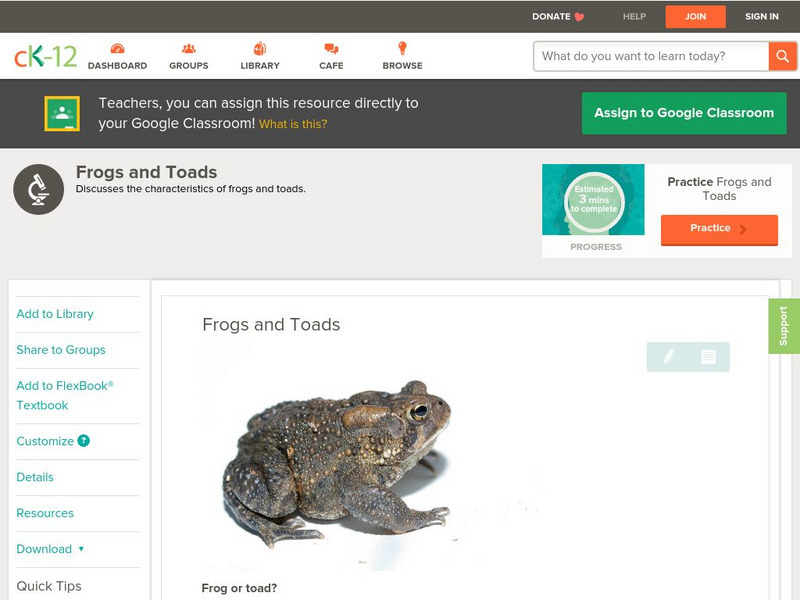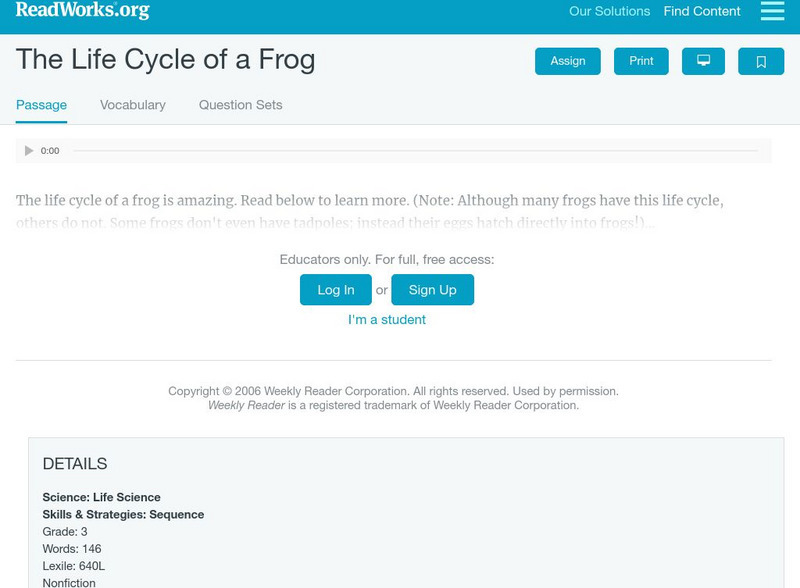Houghton Mifflin Harcourt
That’s Amazing!: Challenge Activities (Theme 3)
Synonym dominoes, anyone? As part of the activities designed for kids who have mastered the basic concepts in the Houghton Mifflin Harcourt thematic unit That's Amazing! kids are offered a variety of activities that include developing a...
Curated OER
Animal Research and Report
Students research an animal that lives near them in their community. They observe and describe animals that live near them. They also include illustrations of the animal they are observing.
Curated OER
Butterfly Metamorphosis Booklet
Students study the four different stages of butterfly metamorphosis, In this butterfly life cycle activity, students construct a metamorphosis booklet by recording and illustrating the butterfly life cycles in the booklet. Vocabulary and...
Curated OER
Language Arts: Then and Now
First graders hear Great Grandma and I. They locate objects representing then (seed) and now (tomato). They make then and now charts for members of their families.
Curated OER
Peanut Butter Broccoli
Fifth graders explore food production by viewing DNA presentations. In this genetic engineering lesson, 5th graders discuss the foods they typically eat at home and how many common foods are engineered in a way that can produce a bigger...
Curated OER
Rock, Paper, Scissors
Fifth graders explore genetic traits. In this genetic traits lesson, 5th graders investigate dominant and recessive traits. Students identify similar traits between a parent organism and its offspring.
Curated OER
Animals and Plants: 1st Grade Science
First graders will have a better grasp on animal characteristics after viewing this presentation. The concepts covered are, skin, life cycle, offspring, size, and human/animal interrelationships. Note: This is good as a concept review or...
Curated OER
The Animal Kingdom
For this animal kingdom worksheet, students read for information and determine comprehension. In this matching and fill in the blanks worksheet, students answer twelve questions.
Curated OER
Sunken Millions Animals
This PowerPoint includes a game with ocean graphics in which two teams answer increasingly difficult questions about animals. Topics covered include plant and animal cells, animal adaptation, and similarities and differences between...
Curated OER
Frame Animation
Students examine the idea that an object might never have a "fixed" existence and may be a thing existing always in flux by creating a frame-based animation of something that transforms from one shape into another. They create...
Curated OER
Amazing Amphibians- Reading Comprehension
In this amazing amphibians learning exercise, students read a one page essay about the characteristics of amphibians. They answer 10 true and false questions based on the reading.
Curated OER
Animals on a Rice Farm
Students investigate animals that live on a rice farm. In this farm instructional activity, students discover the animals that live on a rice farm. Students also explore the machines that farmers need. Students do a fill in the blank...
Curated OER
Animal Parenting
Students analyze parenting instincts. In this parenting instincts activity, students view a drawing of animal they studies and describe what they learned about the animal. Students teach the class about their animal and the class creates...
Curated OER
Amphibians Crossword Puzzle
In this biology learning exercise, high schoolers complete a crossword puzzle with 24 questions about different types of amphibians and functions of their body parts.
Curated OER
Children's Literature Across the Curriculum Ideas-In The Small Small Pond
Learners read In The Small Small Pond by Denise Fleming. They complete a variety of cross-curricular activities surrounding the study of the pond ecosystem. Included are reading, art, math, science, writing, social studies, and library...
Curated OER
Growing Eyeballs
Pupils investigate vision and the anatomy of the human eye. They complete a Webquest, watch a video about the structure of the eye, take an online quiz, answer discussion questions, and read newspaper articles about activities that...
Other
Tooter4kids: Life Cycle of Frogs
The life cycle of the frog is presented in an easy to read format. A simple diagram of the cycle is included.
Other
All About Frogs: Life Cycle of a Frog
Understand the reproduction and life cycle of a frog from mating through spawn, eggs, tadpoles, and growing legs to the final frog. Nice details.
PBS
Pbs Nature: Frogs and Toads
Do you know how to tell the difference between a frog and a toad? This site provides interesting facts and information about this type of amphibian from where they live to what they eat and more.
CK-12 Foundation
Ck 12: Life Science: Frogs and Toads
[Free Registration/Login may be required to access all resource tools.] Frogs and toads are amphibians in the order Anura. In terms of classification, there is actually not a big difference between frogs and toads. Learn more about frogs...
Read Works
Read Works: The Life Cycle of a Frog
[Free Registration/Login Required] An informational text about the steps in a frog's life cycle. A question sheet is available to help students build skills in reading comprehension.
Environmental Education for Kids
Eek!: Amphibians
Amphibians are cold-blooded, smooth-skinned vertebrates. Most live some of their life in water and some on land. The most common amphibian critter is a frog but there are many others. Read about Wisconsin's many amphibians here.
ClassFlow
Class Flow: Frogs
[Free Registration/Login Required] This flipchart is a brief introduction to frogs, their habitats, life cycle, and some fun facts!










